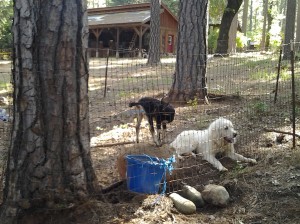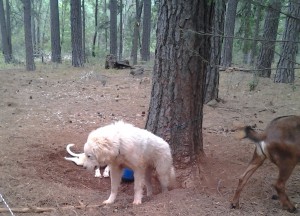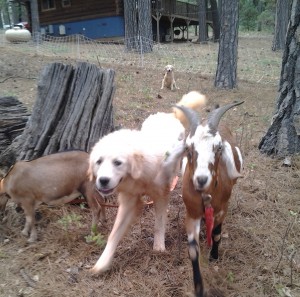Moving Company Scam
Life lessons, sigh. I had never moved across the country before. C.T. and I made the decision to lessen our work and stress by hiring professional movers, even though our money was beyond tight. In my Internet searches I got lists of moving companies and reviews, most of which I now realize are fake, written by employees of the movers. I wish I had searched on the keywords, “interstate moving scam,” before the move. That’s when I learned that what happened to us is a manipulation run by many moving companies and that they operate in the sweet spot of overcharging just enough that legal action isn’t worth it, and the governments don’t come after them because they play states and federal jurisdictions against each other. Sweet spot, indeed. The scam in summary: Your moving company gets you to sign a contract that estimates your weight but they somehow get a weight ticket showing that your household weighs much more than it does, and you must pay thousands more or they will not release your belongings to you. Our story, in general details: After inquiring by email with several companies, C.T. got a call from Colonial Van Lines. The expeditor on the phone said all the right things, that our household goods as described by C.T. probably weighed X amount, and that the company would move us for X dollars, just barely within our budget. Colonial present themselves as brokers, who then hire actual carriers to move your belongings. This was an indulgence for us, but we wanted our move to go well and we felt that having professionals load and drive our possessions was the way to have a smooth move! Soon other employees of Colonial started to call us with issues that would add costs to our bill. First, they decided our stuff weighed more. Then they called to say they couldn’t get the large truck on our street and we would have to pay extra for a shuttle truck. We rejected both these claims. Unfortunately, our contract said that we would not get our deposit back if we cancelled within, I believe, five days of the move and here we were, within five days. Interesting that they suddenly had these concerns then! Then we started getting similar calls from the middle men, the carrier Relo, who would actually move our goods. Our move was going to weigh more, plain and simple. We got scared that the move would cost money we didn’t have. We had to stay on budget. So we opened up boxes, gave away more things, threw things out. We consolidated small boxes into big boxes because, at one point, the callers stressed that it was the number of boxes, not the weight. Then we did something the movers probably didn’t expect: We actually bought a scale and weighed just about every single thing that we own. We stayed up until two in the morning the night before the movers came. We knew we were right at our target, give or take a couple hundred pounds. We knew what our belongings weighed. The Relo crew brought the shuttle truck at no cost to us. We were impressed to watch the crew of movers work. They were skilled, strong and seemed to be taking great care wrapping our furniture, at least while we were present. The crew chief seemed nice and showed us a ticket from a weigh station, showing what the truck weighed before our household was loaded. It seemed like things would work out fine. A day or two later, we got a call from that crew chief telling us that our belongings weighed three thousand pounds more than the contract. Having gone to great trouble to weigh our load, we contested this immediately. We asked for a reweigh, with us witnessing, but we were told the truck was already on the road. We had our own journey to manage, taking a dog and a cat from Maryland to California in a sedan, getting delayed by snow in the mountains. During our five day drive we tried to reach people at Relo and Colonial by phone but we got nowhere on the reweigh request. Once we arrive at our empty rental house in California, we began a period of endless days of phoning, arguing and pleading with people from Colonial and a third company called Atlantic Van Lines, who claimed to have been hired by Relo or Colonial somewhere enroute. This is where the good cop/bad cop play comes in. As far as I can tell, all three companies are the same company. Colonial, the brokers, played good cop, being on our side and trying to represent our interests in getting a reweigh. Atlantic, or Relo or whoever, they were the bad cop, threatening to keep our possessions, threatening to sue us, telling us what a bad company Colonial is and pressuring us hard for thousands more dollars. Just to clarify, the customer is always entitled to a reweigh, at any point on the journey. It’s against the law for a mover to deny you this. Finally the two sides pretended to no longer be working together. Atlantic said they didn’t need to honor any contract signed with Colonial. Colonial played the high road and assured us that Colonial would refund and overcharges themselves and that we should pay the overage. As a matter of fact, A Colonial vice president advised us to rent a different truck, pay the overage, load our things onto the new truck and go immediately to an independent weigh station. We did exactly that, incurring all the related additional charges. Our household belongings weighed exactly what we said they did. Our weigh station weight was in line with the total we got when we weighed each box and piece of furniture on a scale back in Maryland. Here the smoke and mirrors continued. Colonial had us send them all documentation, claiming that they were pursuing legal action against Atlantic on the behalf’s of us and several other clients. We were assured a refund. And the weeks and months rolled by. We had needed that money to live on once we landed here, while we looked for work. Life was hard financially without the money we’d been swindled of, and all of Colonial’s answers to our calls were vague. We are still being told our money will be refunded very soon. Why not just sue them, you’re asking now, right? Yeah. Colonial claims to be based in Florida, and our contract states that any legal action has to be brought against them there. After consulting with lawyers and government officials in California, Maryland and Florida, we found that we would indeed have to sue them there. We are actually willing, but the fees for filing small claims in Florida are higher than the other states, by several times. It’s an ongoing process, as is pursuing criminal action in Maryland. Long story long, the three companies are one group that does this regularly to folks completing interstate moves. Their Florida location and the good cop/bad cop routine protect them well. And who would sue when the cost of doing so roughly equals what they’re stealing? Aparently, these loopholes are the result of deregulation of the trucking industry. A few movers get caught. I did see one article about a moving company owner doing serious jail time. A person or persons in this organization has committed serious fraud with a regulated scale. But I have found that my state of origin and my state of arrival are slow to pick up this banner. Fortunately I have time on my hands to be a squeaky wheel. Lesson learned? Move yourself? Well, buyer beware, at least. Perhaps avoid so called brokers. Definitely drive to the weigh station and witness the before and after weighs of your truck. And read the Moving Rights and Responsibilities handbook carefully before signing a contract with anyone. It’s long, but it’s trying to tell you something. If your contract requires you to pursue legal action in a certain state, research the ease of that. Personally, now that I’ve picked up some moving techniques watching pro’s wrap and pack my furniture, I plan to rent a truck and hire friends in the future. I will travel with my truck. And I will pray for swift karma all around. That people can get away with this says very pathetic things about humanity and our culture.
Subscribe to this blog's RSS feed
Latest Simplicity Complication: Goats’ Guard Dog Sleeps All Day and Barks All Night
The first thing I read about Livestock Guard Dogs barking is that the last thing you want to do is stop them from barking. Well, fine, but the rancher who writes this advice must be amid a thousand acre spread somewhere in Oklahoma. She or he doesn’t have my very sleep deprived neighbors!
Kids will be kids, or some such. We love our eight month old Tonka, who’s doing a great job of keeping our goats safe from deer, foxes, neighbors chatting on their decks, dogs on the opposite ridge, neighbors hammering unknown things in their own yards, and other dangers only he has identified.
Not to make light of potential threats. One chatty neighbor came off his deck to warn us he’d seen the bear around. He was sure that our goats were attracting the bear and a mountain lion he’d heard vocalizing down the

Tonka cools off in foxholes dug under his water bucket. This one in the nursery pen doubled as an escape route.
canyon. The neighbor wanted us to know that he was armed and that if we had any trouble, we could call him and he’d come over and shoot the trouble for us. Thanks. Do you think I could get away with it if I told the next bill collector, “Please put on this bear suit and wait here. I have a phone call to make…” I guess that’s just mean.
So what to do about a giant barking pup? Well, first, understand that he’s not a pet in the conventional sense. He’s more livestock. Yes, we spoil him and we’re not going to eat him, but still, he’s more like livestock, in that he lives with the herd, sleeping in the barn. We need it to stay that way. He’s a working dog with a job and night is a crucial time on his job.
Most advice in books and online has been for pet dogs. These writers assume that the dog lives with people in a house with a yard. Their advice assumes these things, too. Even so, I’ve tried to adapt the best advice to our situation.
All of the advising writers agree: Understand the reason for the barking and make your training relevant to that. At first, when Tonka shared the barn with just Ponder, our tiny bottle baby goat, we humans spent more time with them. Tonka is so playful and outgoing. It was easy to get drawn in.
But making Livestock Guard Dogs human-focused is a no-no. And we quickly saw that his barking, in day and night, was wanting our company.
So we quickly got more goats, a second, younger pup, and ample fencing. Tonka matured and calmed down instantly. He now wrestles with the pup instead of mauling the bottle baby. He walks his perimeter hourly and surveys for trouble. He’s chased away curious foxes and lots of deer.
He also sleeps like the dead. In the middle of the day. In a foxhole that’s becoming the size of a swimming pool. I assume the depth of his sleeping is in part due to the fact that he’s still growing. He’s a teenager and human teenagers, well, they need a lot of sleep.
Tonka and the herd overnight in the barn that’s between our cabin and our landlords’ cabin. We share the herd with our landlords, and thus, we started by barking corrections at him from the cabins on either side of the barn. Sometimes one of us would throw on clothes and trek out to the barn to make sure everything was okay. Whatever fantasy we had of strangling him so we could sleep would melt away to coos and reassurances when we would see that enormous, innocent head, breathing hopefully at our approach.

Tonka climbs out of his current foxhole, which he shares with Dana and Ponder, the bottle baby he protects from typical goat hazing.
We changed the bedding. We brainstormed expanding the stall. Soothing music. I even spent several nights in a row sitting in the dark for hours, a few yards from the stall, ready to correct each bark and reward his stopping. Everything we tried had this in common: It worked at first, then stopped being effective.
At this point, he’s forming this as habit, or even a game.
My partner, my very sleepy partner, C.T., noticed Tonka sacked out in his foxhole a little while ago, passing away the heat of a summer midday. “Retribution!” C.T. called. He had the idea of tossing pine cones near the sleeping dog, keeping him awake as payback and also as a way to insure Tonka would be sleepy tonight. He gathered up pine cones and took position. I watched from a bathroom window. Incoming One: It landed three feet from Tonka’s nose. No response. Income Two: Landed just outside the electric netting. No movement. Incoming Three: Bounced off subject’s right ear. Subject unresponsive. Mission: Failure.
I know dogs typically sleep about sixteen hours per day, and that they rarely sleep through the night. I’ve lived with dogs all my life. But Tonka’s youth, and maybe the summer heat, are challenging me right now. I tried exercising him more. This can’t do me any harm, either! But a walk around the land didn’t wear him out. His breed doesn’t like fetch. Too bad; That’s always worked for our Sheltie.
I’m ready for drugs. I can see this going several ways. First, the drugs are either for the dog or all the humans in the neighborhood. Then, he or we get uppers for the day and downers for the night.
The saddest part is that Tonka is the wise one here. We live in the mountains above Chico, California. Every summer the college students vacate and Chico rolls up its streets like other college towns. We keep being told that this event or that organizing should wait until the students get back. This has always seemed strange to us because few if any students come to the events we’re discussing. But we’ve slowly come to understand that Chico, in the wide open valley, becomes an intolerable oven in the summer. Saying wait for the students to come back is a euphemism for wait for Chico to awaken from its sun coma. It’s too hot to think.
Tonka has it right. We humans structure ourselves, scheduling year round, filling the time with do, do, do. We have forgotten siesta time. Or worse, we make some racist association with lazy Mexicans or other desert dwellers who simply know that our schedules-of-European-decent won’t work here.
Don’t think I can sell that to the neighbors of European decent. Tonka’s getting drugs!
—WT
Humans Are Exhausting
Dana, our Akbash Livestock Guard Dog pup, is getting used to people. When she came to us a week ago, she had mostly bonded to the goats and dogs in her herd of birth. She came with two of those goats and she quickly made friends with our bottle baby goat and our eight month old LGD. But she just begrudgingly tolerated us human types.
Other than a quick visit with the landlord’s grandchildren, her first exposure to people other than her handlers was last Saturday’s Food Not Bombs public feeding at Chico, California’s City Plaza. Suddenly she was surrounded by cars, adults, children, lapdogs, and the Chico summer heat.
Our Sheltie Tuatha came along as he does most Saturdays. He seemed to enjoy initiating Dana to the public fountain, a great way for furry folks to cool off. Dana got plenty wet, but she mostly just watched the human children jump through the spray while Tuatha barked at the water.
After a few interactions with humans, Dana being passive, as if leaving her body, she finally started to approach people proactively and she seemed to enjoy their touch and talking. By the end of the event, a very tired, wet puppy laid next to our friend Lisa, who gave her more touch.

Dana, wet from playing in the fountain, snuggles with her new human friend, Lisa, as the Food Not Bombs feeding winds down.
A few days later, Dana went with me to the feed store and One Mile at Chico’s Bidwell Park, where hundreds of people were cooling off in a pool. Dana was fine, trotting along with me on her leash, no longer doing that puppy death pull. She was curious about people lying down sunbathing, but not enough to trot right up and introduce her cute self. But when one woman with a large family fell in love with her, Dana got lots of attention.
After these trips out into the human world, Dana sees me and runs to me, behavior she wasn’t doing before. Just today, she sought me out and let me rub her belly for several minutes. She does play posture with me and generally has accepted me as part of the herd. Instead of pretending that my partner C.T. is invisible, she’s interested and affectionate.
How will she be with strangers as she matures? As an LGD, she has the genetic programming and early socialization to be wary of strangers until her humans show that they’re acceptable. If her deformed paw or other circumstances determine that she will be a general farm dog or even a pet, we want her to have good human socialization.






